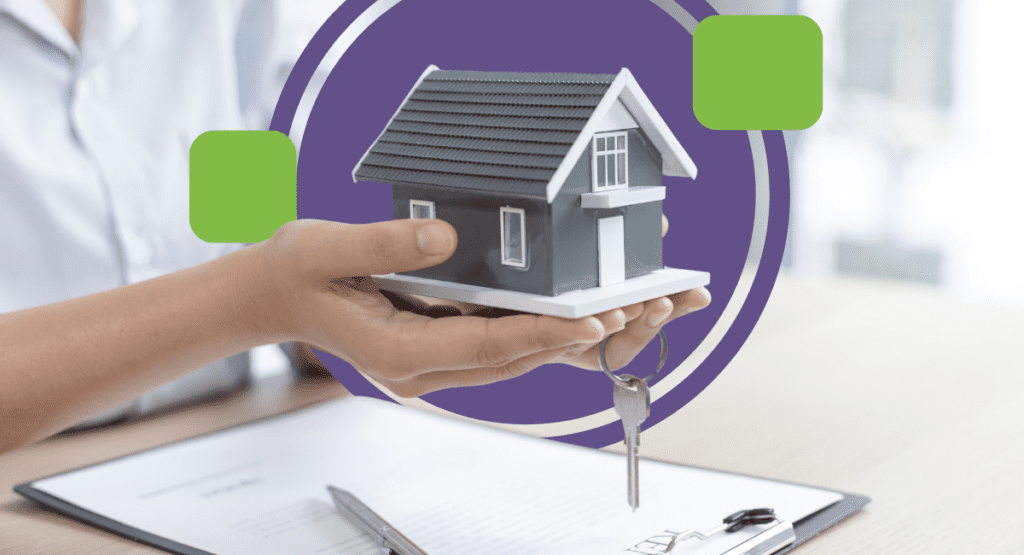Going to medical school and becoming a doctor can mean taking out multiple six figures of student loan debt. According to the Association of American Medical Colleges (AAMC), the median debt borrowed for attending medical school is $200,000. That number can be closer to half a million dollars, depending on your school, state, and other factors.
And although established physicians earn a median salary of $208,000, according to the latest data from the Bureau of Labor Statistics, a first-year resident physician only earns about $60,000, based on AAMC data.
Due to this high level of student debt and lower starting salary, homeownership can feel out of reach, particularly for early-career doctors. But physician mortgage loans, sometimes referred to as doctor loans or physician loans, are designed to address this unique financial situation. Although this financing option helps doctors in the home-buying process, understand the pros and cons of physician loans first.
Benefits of physician loans
Physician mortgage loans often offer zero or low down payment requirements, waive private mortgage insurance (PMI), and some allow up to 100% financing. Plus, mortgage lenders generally see medical school debt on a physician mortgage loan application as less detrimental than when noted on a conventional mortgage.
No to low down payment options
Depending on the mortgage lender, you can obtain a physician mortgage with a low down payment or no down payment at all. Your down payment requirements depend on the lender you choose, loan amount, and other application details.
Fifth Third Bank, for example, offers up to $750,000 in financing with zero down payment. If you borrow up to a million dollars, a “low” down payment applies, according to the company website.
Physicians who are eager to become homeowners can avoid saving up for years toward a down payment, and instead, expedite their goals with a physician mortgage loan.
Related: The Great Debate: Physician Loan vs. Saving for a Down Payment
No private mortgage insurance (PMI)
Applying for a conventional loan without a typical 20% down payment would mean you’ll pay additional money toward private mortgage insurance (PMI). This adds to the total cost of homeownership.
One major pro of physician loans is that there’s no private mortgage insurance requirement. This means, if the lender requires a low down payment, you won’t be penalized by putting down less than 20% of your purchase price.
Treats student loan debt differently
Physicians have a higher-than-average student loan debt which dramatically increases your debt-to-income ratio (DTI). Your DTI ratio refers to your total monthly debt obligations in relation to your monthly income. To come up with the ratio, you divide the monthly debt amounts by your gross income.
A high DTI makes it tough to get a conventional mortgage. Your DTI can’t exceed 43% to qualify for a mortgage, though many lenders prefer borrowers to have a DTI below 36%.
Many physician mortgage lenders, however, treat student loans differently when it comes to doctor home loans. For example, Bank of America states it “can often exclude your student debt from your total debt when you apply for a mortgage.”
Considering how high student loans can be for doctors, this is a major advantage that helps you qualify for a physician mortgage loan.
Access to a higher loan amount
Physician mortgage lenders are keenly aware that you’ll eventually earn good money later in your career. Because of this assumption, physician mortgage loan programs sometimes offer higher loan amounts, compared to a conventional mortgage.
As noted above, Fifth Third Bank doctor mortgages allow financing up to $750,000 with no money down. For a low down payment, you could borrow up to a million dollars. Being able to borrow a higher amount can help you navigate competitive real estate markets, and entertain a variety of homes. However, just because you can borrow more toward your home, doesn’t mean you should, which brings us to the cons of physician loans.
What mortgage product do you need?
Your Occupation
Home Price Range
Preferred Down Payment
Stage You're At in the Home Buying Process
When Do You Want a Mortgage Approval?
How Many Banks Would You Like Quotes From?
Any Bankruptcies or Short Sales?
Full Name
Phone Number
State Where You Plan to Purchase
Metro Area Where You Plan to Purchase
Citizenship Status
Communication Preference
Would You Like to Add Any Additional Details?
Disadvantages of physician loans
Physician loans are a lucrative home financing option that can make a lot of sense for doctors. But like any loan product, it’s crucial to consider and prepare for the downsides it entails. Here are some caveats to consider.
Interest rates might be adjustable
The type of interest rates offered may depend on the lender, but some offer fixed rates and adjustable rates. Fixed rates offer a predictable monthly payment and overall cost for the loan. However, adjustable rates can change during your repayment term, based on economic factors.
An adjustable rate mortgage (ARM) can be attractive at first glance because they might offer lower rates to start, but it’s important to understand that the rate isn’t permanent. If you’re not financially prepared for a rate increase, it might be difficult to make your mortgage payment.
Can borrow too much
A higher loan amount can be an advantage, but it can be a negative characteristic, too. If you’re not careful with your spending and debt obligations, you could take out a much larger loan than makes sense for your income and budget.
Just because you get approved for a certain mortgage amount, doesn’t mean you can afford it. Consider your student loan payments, savings and investing goals, childcare expenses, and other financial goals. If your mortgage makes it difficult to afford other high-priority expenditures, you won’t be in financial balance.
Could end up with underwater mortgage
A large loan amount could also put you in a bind if your home value plummets, and puts your mortgage underwater. The term “underwater” refers to the value of your home being less than what’s owed on the principal balance. If home values go south and you provide no down payment, you might find yourself in this situation.
This can keep you stuck with your mortgage loan for a while, and can make selling your home or refinancing your loan challenging.
Only available for primary residences
There are specific terms that lenders have for physician loans, including criteria on the property itself. Some physician mortgage lenders require that the loan is used toward a primary residence only.
If you’re a first-time homeowner, this might not be an issue. But if you’re looking for a mortgage toward a second home or a new investment property, this may not be a viable option for you.
Physician loan alternatives
After reviewing the pros and cons of physician loans, you might want to consider the alternatives to compare all of your options. Though physician loans might be your best bet, it’s smart to run the numbers. Some physician loan alternatives are:
- Conventional loans. According to the Consumer Financial Protection Bureau (CFPB), conventional loans are any mortgage loan that isn’t backed by the US government. Generally, you need a 20% down payment to qualify, or pay for PMI. Each lender has its own underwriting criteria to see if you meet its requirements for the loan.
- FHA loan. The Federal Housing Administration (FHA) offers specific FHA loans. They typically require at least a 3.5% down payment and its credit requirements are not as strict as a conventional loan. Plus, FHA loans might offer more affordable closing costs.
- VA loan. There are various VA loan options, some of which require no down payment for qualifying veterans. VA loans also don’t require PMI.
Is a physician loan right for you?
Doctors and other healthcare professionals are given a unique opportunity to finance their dream home when they’re just getting started. Physician home loans have attractive terms and can be a good opportunity in many cases, but it’s key to evaluate the pros and cons of physician loans.
To make sure it’s a smart decision, look at all potential fees, closing costs, down payment requirements, underwriting and compare your offers to other financing options. Consider other areas of finances such as debt repayment and savings, and borrow what you need so you have a buffer for other priorities. Learn more about physician mortgage loans.
Physician loan FAQ
Doctors, dentists and other medical professionals might qualify for physician loans. The requirements vary based on the lender.
A physician loan is a specific loan product designed for doctors, dentists and medical professionals. It’s not a conventional loan in the traditional sense, as it’s not available to all consumers. However, similar to a conventional loan, this loan type isn’t backed by the government and comes from private lenders and banks.
Doctors might be eligible for mortgage financing through physician mortgage loans which generally have attractive terms. For example, some physician loans offer prospective borrowers no or low down payments and no private mortgage insurance.
Credit score requirements vary based on lender. To qualify for a physician loan you generally need a minimum credit score of 700. Having a higher credit score can help in the approval process.


